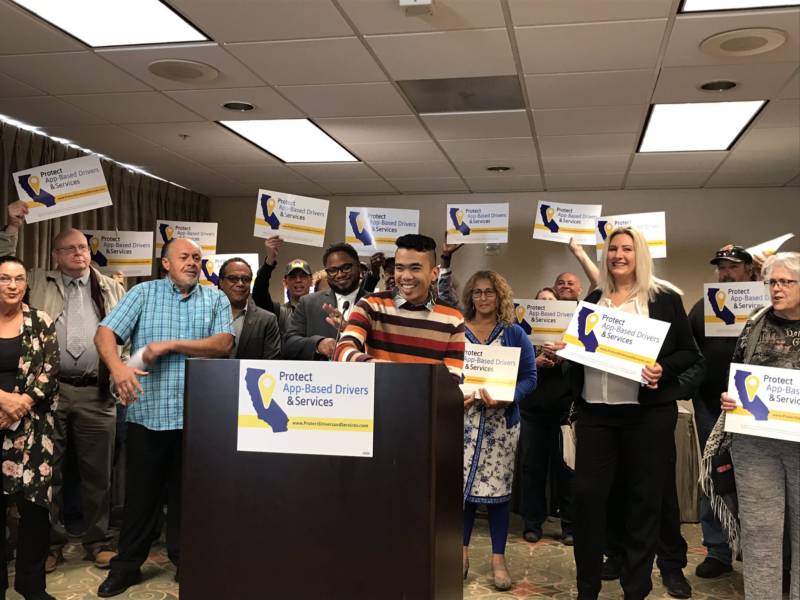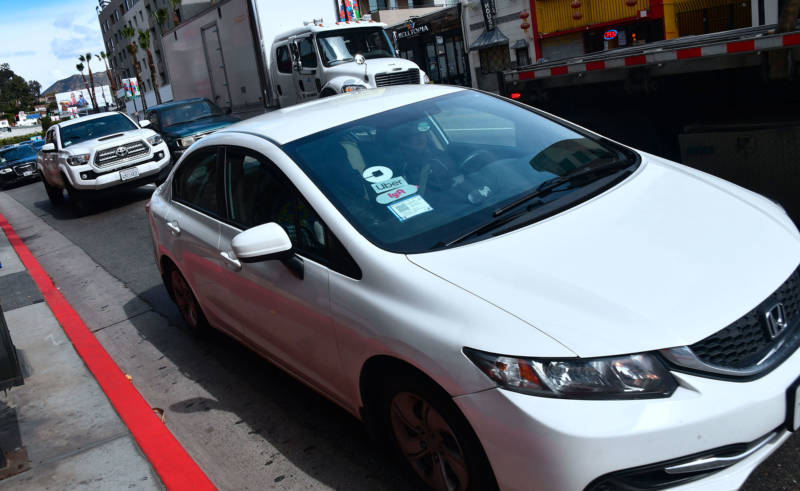Ever since the California Supreme Court’s “Dynamex” ruling last year set a new test for when a worker is considered an employee, gig companies have tried to exempt their drivers and keep them classified as independent contractors.
Now, after failing to win that exemption in the Legislature, they’re turning to voters.
Uber, DoorDash and other “gig economy” companies took the first formal step toward what they’ve pledged will be at least a $90 million campaign fight Tuesday by submitting a potential November 2020 ballot measure to the state Attorney General’s Office.
“We’re trying to pair independent contractor status, and the flexibility that’s inherent with it, with what we believe — and the drivers behind us believe — is a fair package of economics,” campaign spokesman Brandon Castillo said at a news conference that included Sacramento area gig economy workers.
A coalition of labor unions opposed to the measure accused the gig companies of trying to “buy democracy away from drivers” and “cling” to an “exploitative business model.”
The initiative promises new benefits, such as a wage floor and health care subsidies, but doesn’t include Social Security benefits or the right to unionize.
That would appear to leave wiggle room for a potential compromise with organized labor in the coming months — something the gig companies say they’re open to. Under state law, initiative proponents have until late June to withdraw their ballot measure if an agreement is reached in the Legislature.

a potential November 2020 California ballot measure backed by gig companies at a news conference on Oct. 29, 2019. (Ben Adler/Capital Public Radio)
The narrowly tailored — and retroactive — ballot proposal would only apply to app-based ride hail and delivery drivers. In addition to Uber, Lyft and DoorDash, Instacart is on board and Postmates likely will be, too.
But drivers for those companies are split, and each side is putting forth its own examples.
Lynn Reagan says she needs the flexibility as an independent contractor to care for her four grandchildren, because their mother is on bed rest.
“If this was taken away, it would devastate me because there’s no job out here that I can get — especially at my age — that’s gonna allow me to come and go as I need to do,” she said at Tuesday’s news conference in favor of the ballot measure.
But another Sacramento-area driver, Jeff Perry, says he checked the math — and the ballot measure would cut his pay. He argues the only path to fairness is to make workers like him full employees.

